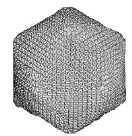Plant Pathology, Department of

James Van Etten Publications
Document Type
Article
Date of this Version
11-2016
Citation
Published in final edited form as: Science. 2010 May 7; 328(5979): 689–690.
doi: 10.1126/science.328.5979.689
PMCID: PMC5125622
NIHMSID: NIHMS463085
PMID: 20448167
Abstract
We are deeply disturbed by the recent escalation of political assaults on scientists in general and on climate scientists in particular. All citizens should understand some basic scientific facts. There is always some uncertainty associated with scientific conclusions; science never absolutely proves anything. When someone says that society should wait until scientists are absolutely certain before taking any action, it is the same as saying society should never take action. For a problem as potentially catastrophic as climate change, taking no action poses a dangerous risk for our planet.
Scientific conclusions derive from an understanding of basic laws supported by laboratory experiments, observations of nature, and mathematical and computer modeling. Like all human beings, scientists make mistakes, but the scientific process is designed to find and correct them. This process is inherently adversarial—scientists build reputations and gain recognition not only for supporting conventional wisdom, but even more so for demonstrating that the scientific consensus is wrong and that there is a better explanation. That’s what Galileo, Pasteur, Darwin, and Einstein did. But when some conclusions have been thoroughly and deeply tested, questioned, and examined, they gain the status of “well-established theories” and are often spoken of as “facts.”
We urge our policy-makers and the public to move forward immediately to address the causes of climate change, including the unrestrained burning of fossil fuels. We also call for an end to McCarthy-like threats of criminal prosecution against our colleagues based on innuendo and guilt by association, the harassment of scientists by politicians seeking distractions to avoid taking action, and the outright lies being spread about them. Society has two choices: We can ignore the science and hide our heads in the sand and hope we are lucky, or we can act in the public interest to reduce the threat of global climate change quickly and substantively. The good news is that smart and effective actions are possible. But delay must not be an option.
Included in
Environmental Sciences Commons, Genetics and Genomics Commons, Plant Pathology Commons, Viruses Commons


Comments
Copyright 2016 AAAS; used by permission.